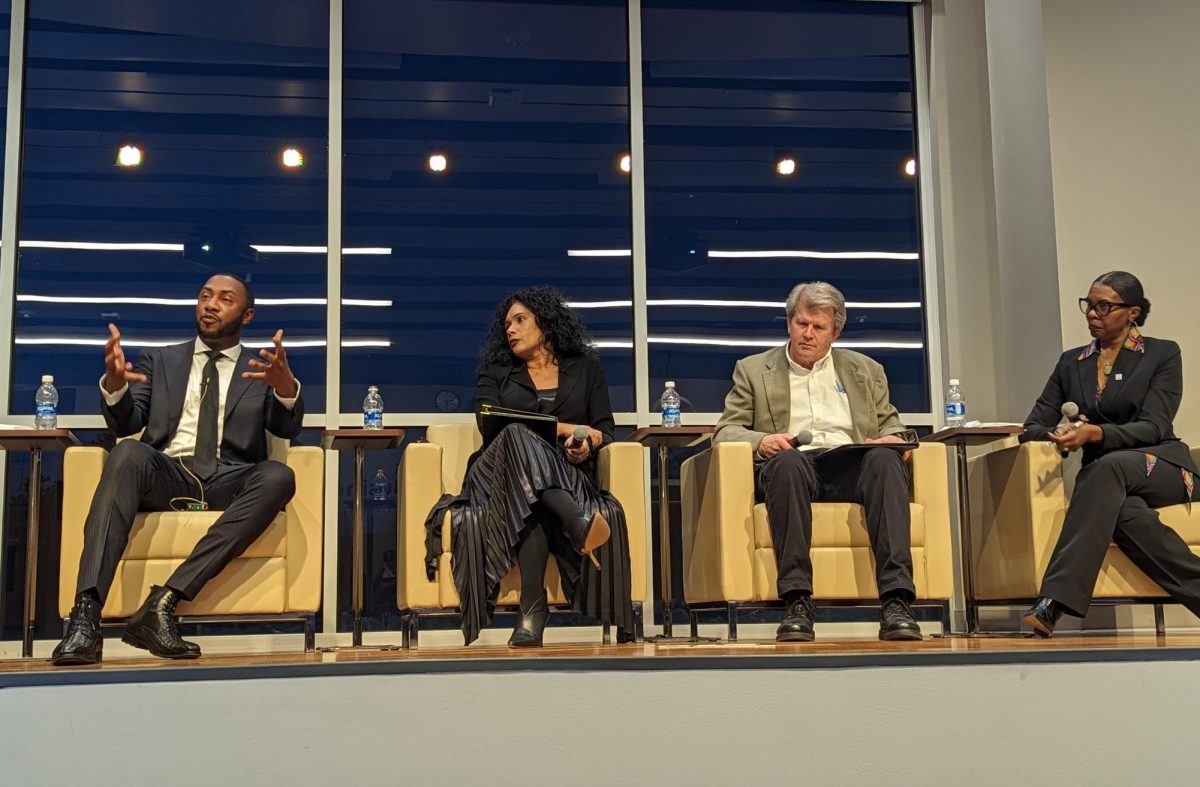Think back on all the teachers you’ve ever had—from preschool to college—and odds are many, if not most, were women.
The National Center for Education Information reported in 2011 that women made up 84 percent of teachers from kindergarten through high school in the United States. The U’s College of Education reflects these numbers, with the enrollment for male undergraduates hovering just above 15 percent, according to the Office of Budget and Institutional Analysis.
Mary Burbank, Assistant Dean for the College of Education says the school is working to correct this gender imbalance.
“It’s critical that teachers represent the communities they serve,” she said, “both in the race and ethnicity of their students, but also in gender.”
Burbank said the college has started “A Few Good Men,” a program which identifies male teachers going into elementary education and discusses with them ways to recruit more men into the field.
Burbank also mentioned the Teachers Recruitment Scholars Program, which identifies recent high school graduates from underrepresented communities and first-generation college families who want to be teachers. It starts them in Salt Lake Community College and then brings them to the U in order to encourage diversity.
Efforts to diminish the gender imbalance in teaching is a recent phenomenon. Women have dominated the field in America since the Industrial Revolution, when men left academia for lucrative factory jobs. Administrations began an effort to fill teaching positions in America’s growing public school system with women as they could pay them less and public belief held them to be morally suited to the profession. When men did pursue careers in education, they tended to enter administration positions, as they were higher paying positions — a dynamic that hasn’t yet shifted.
“While teaching brings an important salary, it’s not competitive with other professions,” Burbank said.
Teacher income varies depending on state and grade-level taught, but the National Association of Colleges and Employers found the average starting salary for a teacher is around $30,000. A report by the Economic Policy Institute found teacher’s wages, adjusted for inflation, have risen just 0.8 percent since 1996.
Men who enter educational fields tend to do so through nontraditional means, such as Aaron Dembe, a doctorate student in counseling psychology.
Dembe earned his bachelor’s in music 13 years ago and spent time performing, doing audio engineering and teaching guitar. He said he felt unfulfilled and wanted to contribute to the world “in a way that playing guitar in a funk band at a brewpub just didn’t quite do.”
After trying a few career paths in music and law, he eventually came to the U’s counseling psychology program.
“I really like it,” Dembe said. “I learn a lot, which is exciting. I get to help people, which feels righteous. I often get a modicum of respect from various people, which is a wonderful stroke for my ego.”
Dembe said he has been one of the few men in his classes—both at the U and in his prerequisites at Austin Community College. He said while he is numerically a minority, he hasn’t felt marginalized.
Burbank said due to teaching’s traditional association with childcare and nurturing, many view it as an inherently feminine occupation and Dembe agrees.
“Education is much more a part of this female-child construction than it is a male-adult construction,” he said.
Dembe does see some hope for change in the near future.
“Perhaps when women begin to reach pay equity and equal representation in government and business, that will affect family roles, and family roles will reach gender equity, and this will affect attitudes regarding education, caregiving, feelings and psychology,” Dembe said. “We should all live so long as to see that day.”
@Ehmannky





















